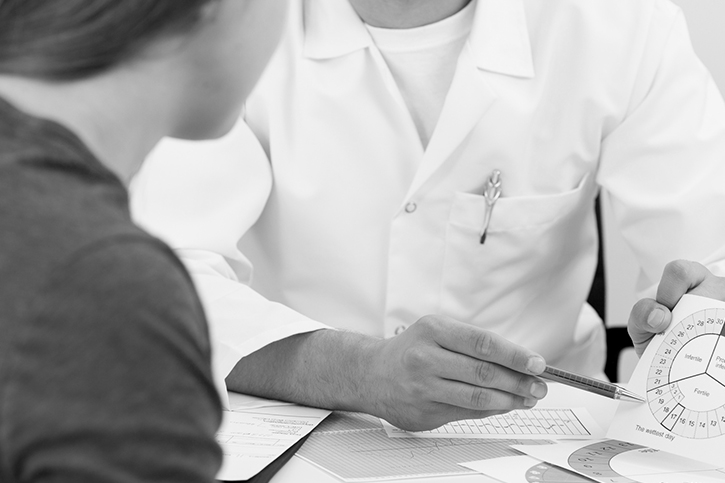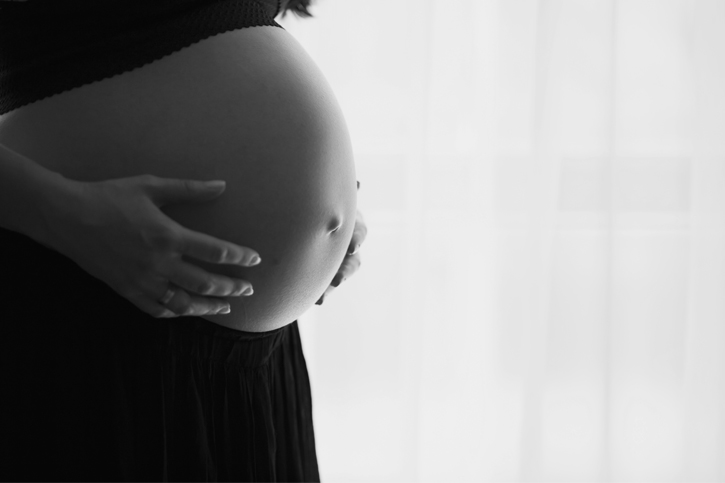Blood pressure is a measurement of how hard your blood pumps against your artery walls. You need some pressure for blood to pump efficiently, however too much pressure can lead to a number of serious problems.

High blood pressure during pregnancy can lead to a number of issues for you and your baby. Here we take a look at what may cause this, and what you can do to help.
High blood pressure (hypertension) during pregnancy is a reading of 140/90 mm Hg. What does this mean? The first number is the pressure reading when the heart contracts and pumps blood, and the second number is the pressure the when the heart relaxes and refills. Blood pressure usually rises during pregnancy and you will have your blood pressure checked during all of your antenatal checkups. If it is too high it can cause complications for you and your baby.
What Might Be The Cause of High Blood Pressure During Pregnancy?
High blood pressure can be caused by a number of things. Some of these are lifestyle-related and others are out of your control:
• Smoking
• Drinking alcohol
• Obesity
• Sedentary lifestyle
• High sodium intake
• Poor diet (low intake of fruit and vegetables)
• Age (older women are at higher risk of hypertension)
• Diabetes
• Kidney disease
• First time pregnancy
• Having had preeclampsia during a previous pregnancy
• A family history of high blood pressure during pregnancy
What Are The Symptoms of Having High Blood Pressure During Pregnancy
Often high blood pressure doesn’t cause any symptoms, so you may not know you have it until you have your first antenatal test. Possible symptoms include:
• Bad headaches
• Severe anxiety
• Shortness of breath
• Dizziness
• Nausea
• Nosebleeds
• Clamminess
How Can High Blood Pressure Affect Pregnancy
Blood pressure that is just over 140/90 may not cause any complications and may not require treatment if managed and monitored closely. However, the higher your pressure is, the greater the risk of complications. These may include:
Preeclampsia
Preeclampsia occurs when high blood pressure develops 20 weeks into your pregnancy. It is often accompanied by signs that other organs aren’t functioning properly and protein in the urine. If preeclampsia develops because you already have high blood pressure, this is known as “superimposed preeclampsia.”
If left untreated, the condition can lead to serious problems such as convulsions, HELLP syndrome (a liver and blood-clotting disorder), problems in the kidneys and brain, and stroke. Modern terminology describes this as “severe pre-eclampsia”. The cause of the condition is unknown, but genetic factors and the placenta seem to play a role. It is one of the key reasons your blood pressure needs to be checked during pregnancy.
Problems With Foetal Development
Having high blood pressure may disrupt the delivery of blood and nutrients to your baby via the placenta. This can cause issues with foetal development and may mean that your baby is smaller when it is born, or may cause premature birth.
Caesarean Section
High blood pressure is one of the reasons why women need a caesarean section. Roughly 40% of women with high blood pressure will need to give birth by c-section.
Placental Abruption
High blood pressure increases the chance of placental abruption, a condition where part or all of the placenta separates from the uterine wall prior to birth. This can cause severe bleeding and post a serious risk to you and your baby.
Injury To Your Organs
Very high blood pressure that is not managed properly can cause problems with many of your organs including your brain, heart, lungs and kidneys, leading to further complications. This may be life-threatening to you and your baby.
Preterm Birth
Having high blood pressure may mean you your baby will require an early delivery to avoid any further complications.
Cardiovascular Disease
If high blood pressure progresses to preeclampsia, the chance that you will have high blood pressure and cardiovascular disease later in life increases.
How Is High Blood Pressure Diagnosed?
During each of your antenatal checkups, you will have your blood pressure monitored to assess how high it is. If you are at risk of having high blood pressure, you may also need to monitor your blood pressure at home in between visits.
These are the blood pressure levels, with a general comment about them. Remember that blood pressure can be as individual as you. A single abnormal reading does not necessarily make a diagnosis.
• 120/80 mm Hg or below is good
• 120/80 – 140/90 mm Hg means you are at risk of hypertension.
• 140/90 – 160/110 mm Hg is mild to moderate high blood pressure
• 160/110 mm Hg is severe high blood pressure
How Can I Reduce The Risk of High Blood Pressure During Pregnancy and Further Complications
It is very normal for your blood pressure to fluctuate during pregnancy. Hormones relax the walls of your blood vessels in the first and second trimester, and after this, it can increase.
Many factors that cause high blood pressure are lifestyle related and can be easily controlled. If you are trying to get pregnant and concerned about your blood pressure being too high, quit smoking and drinking, make sure your weight is at healthy levels. Salt restriction does not have a role in blood pressure management during pregnancy, but might be needed if you have high blood pressure outside pregnancy.
If you have high blood pressure during pregnancy, there are a number of things you do to reduce the risk of complications. Firstly talk with your doctor about management and heed their advice. Be sure to lead the healthiest lifestyle you can: eat plenty of fruit and vegetables, keep active, stick to your prenatal appointments and take medication if prescribed.
If you have any questions about high blood pressure during pregnancy, booking a prenatal appointment, or anything else, please don’t hesitate to get in touch. Dr Brown is one of the most trusted OBGYNs in Sydney and will be more than happy to help.
